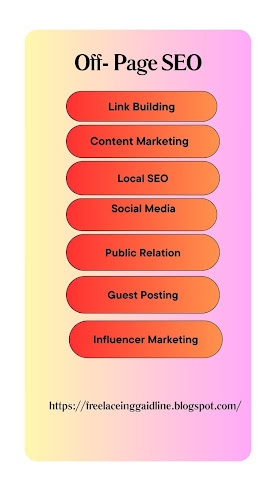The Dynamic Landscape of Digital Marketing: Navigating the Trends and Strategies for Success
Introduction
In the rapidly evolving realm of business, the significance of digital marketing cannot be overstated. As technology continues to advance, businesses are compelled to adapt their strategies to stay relevant in the digital landscape. Digital marketing has emerged as a powerful tool, reshaping the way companies connect with their target audience, build brand awareness, and drive sales. In this article, we will explore the multifaceted world of digital marketing, examining its key components, current trends, and effective strategies for success.
The Foundation of Digital Marketing
At its core, digital marketing encompasses a wide range of online activities aimed at promoting products or services. This includes but is not limited to search engine optimization (SEO), social media marketing, content marketing, email marketing, and pay-per-click (PPC) advertising. The integration of these components forms a comprehensive digital marketing strategy designed to engage, convert, and retain customers in the digital age.
1.Search Engine Optimization (SEO)
In the vast digital landscape, search engines serve as gatekeepers, determining the visibility of businesses online. SEO is the practice of optimizing a website to enhance its visibility in search engine results pages (SERPs). This involves optimizing content, improving website structure, and building high-quality backlinks. As search algorithms evolve, staying abreast of SEO best practices is crucial for maintaining a strong online presence.
2.Social Media Marketing
Social media platforms have become integral to the daily lives of billions of people worldwide. Leveraging these platforms for marketing purposes is a key aspect of digital marketing. Businesses use platforms like Facebook, Instagram, Twitter, and LinkedIn to engage with their target audience, share content, and build brand loyalty. The dynamic nature of social media requires marketers to adapt strategies to match the trends and preferences of their audience.
3.Content Marketing
Content marketing involves creating and distributing valuable, relevant, and consistent content to attract and retain a target audience. This can take various forms, including blog posts, articles, videos, infographics, and more. By providing valuable information, businesses position themselves as authorities in their industry and build trust with their audience. Content marketing is not only about creating compelling content but also about optimizing it for search engines and sharing it across appropriate channels.
4.Email Marketing
Despite the emergence of new communication channels, email marketing remains a potent tool for businesses. This strategy involves sending targeted messages directly to a recipient's inbox. Personalized and well-crafted emails can nurture leads, encourage customer loyalty, and drive sales. Automation tools have further enhanced the efficiency of email marketing campaigns, allowing businesses to segment their audience and send relevant messages at the right time.
5.Pay-Per-Click (PPC) Advertising
PPC advertising is a model where advertisers pay a fee each time their ad is clicked. This method provides a way for businesses to buy visits to their sites, ensuring that their message reaches a targeted audience. Platforms like Google Ads and Bing Ads allow businesses to bid on keywords relevant to their products or services. Crafting compelling ad copy and selecting the right keywords are crucial for the success of PPC campaigns.
Emerging Trends in Digital Marketing
As technology continues to advance, new trends and innovations shape the digital marketing landscape. Staying ahead of these trends is essential for businesses looking to maintain a competitive edge. Some of the emerging trends in digital marketing include:
1.Artificial Intelligence (AI) and Machine Learning: AI and machine learning are revolutionizing digital marketing by enabling more personalized and predictive strategies. From chatbots that enhance customer interactions to algorithms that optimize ad targeting, AI is transforming how businesses connect with their audience.
2.Voice Search Optimization: With the rise of virtual assistants like Siri and Alexa, optimizing content for voice search has become imperative. Businesses need to adapt their SEO strategies to accommodate the conversational nature of voice queries.
3.Video Marketing: Video content continues to gain popularity, with platforms like YouTube and TikTok leading the way. Businesses are leveraging video marketing to tell compelling stories, showcase products, and engage audiences in a more immersive way.
4.Influencer Marketing: Collaborating with influencers who have a significant following in a particular niche can be a powerful way to reach a target audience. Influencer marketing fosters authenticity and trust, as influencers act as relatable advocates for products or services.
5.Interactive Content: Interactive content, such as quizzes, polls, and interactive infographics, is gaining traction as a way to enhance user engagement. Interactive elements encourage users to actively participate, fostering a deeper connection with the brand.
Effective Digital Marketing Strategies
Achieving success in digital marketing requires a thoughtful and integrated approach. Businesses must tailor their strategies to align with their goals, target audience, and industry. Here are some effective digital marketing strategies:
1.Define Clear Goals: Before embarking on a digital marketing campaign, it's essential to define clear and measurable goals. Whether the objective is to increase website traffic, generate leads, or boost sales, having specific goals provides direction and allows for more accurate measurement of success.
2.Understand Your Audience: Knowing your target audience is fundamental to crafting effective digital marketing campaigns. Conduct market research to understand the demographics, interests, and preferences of your audience. This information will inform content creation, messaging, and channel selection.
3.Create Quality Content: Content remains king in the digital marketing realm. Develop high-quality, relevant, and valuable content that addresses the needs and concerns of your audience. Whether through blog posts, videos, or infographics, compelling content establishes your brand as an authority in your industry.
4.Optimize for Mobile: With the prevalence of mobile devices, optimizing your digital assets for mobile is crucial. Ensure that your website is mobile-friendly, and consider mobile-specific strategies such as SMS marketing and mobile advertising.
5.Utilize Data and Analytics: Data-driven decision-making is a cornerstone of successful digital marketing. Utilize analytics tools to track the performance of your campaigns, measure key performance indicators (KPIs), and make informed adjustments to optimize results.
6.Embrace Social Media: Social media platforms provide a direct line of communication between businesses and their audience. Develop a strong social media presence, share engaging content, and actively interact with your followers to build brand loyalty.
Conclusion
In the ever-evolving world of digital marketing, adaptability and innovation are paramount. Businesses that embrace the dynamic nature of the digital landscape and stay attuned to emerging trends will position themselves for success. From leveraging the power of artificial intelligence to crafting compelling video content and embracing interactive experiences, the opportunities in digital marketing are vast. By implementing effective strategies, businesses can not only navigate the complexities of the digital realm but also thrive in an environment where connectivity, engagement, and relevance are the keys to success.



























